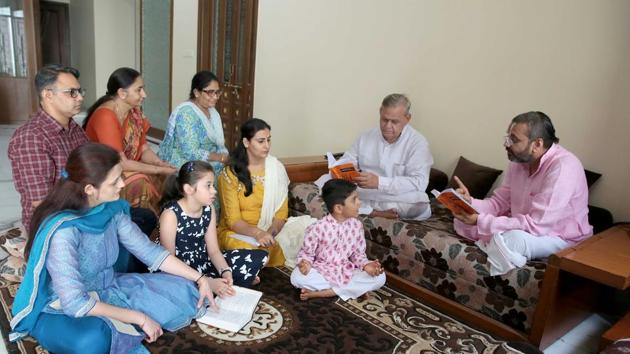

Harris: I've been saying quite all through the summer, the water's up to our necks already. How would you assess these warnings of a second wave? If you're wearing a mask, that will limit the chances of that happening considerably. Because indeed, if you may think you're perfectly healthy, you are unaware that you are infected with the virus, and yet you could be infecting others, especially if you're in close contact with them in closed, poorly ventilated environments. That's why there's been more emphasis on use of masks, especially when you're in close contact. But I think, unfortunately, that has backfired a little and that people feel now, you know, "OK, it's peace time, we're now free, we're liberated." They kind of took on a sort of wartime mentality that we had to do this together.

Harris: It's certainly interesting in that, when Wuhan did it we were like, "Wow, you'd have to have a society that's very accepting of stringent measures to be able to do that successfully." And yet countries that were culturally, socially, very, very different from Wuhan did it, and did it successfully.Īnd to me, that shows that the people got it, got that it was a very serious matter. Is it fair to say that there was a bit of confusion about what countries were meant to do? Were you surprised that lockdown became the preferred measure for such a wide range of countries? They have very fresh memories of what infectious disease outbreaks can do and they take it seriously. They understand infectious disease outbreaks. One of the theories about why they seem to have done better than many of the more developed countries or more developed areas is that they, too, have a very strong public health infrastructure. But they have been able to bring it down.

There are three criteria for determining whether something is a public health emergency of international concern: Is it something we've not come across before? Was it an international spread? And is it something that needs the international community to be galvanized, to be made very aware and very ready and work together to stop?Īfrica's interesting in that people were very like, "Oh, well, the minute they get to Africa, you know, it's going to sweep here and kill everybody." And yet there has been some very large outbreaks, South Africa notably.

The important issue is: does it constitute a "public health emergency of international concern" under the international health regulations? Harris: This is something that people don't really understand. Were we generally underprepared for a pandemic? The WHO was criticized for calling a pandemic too late. The interview below has been edited and condensed for clarity. Margaret Harris to discuss the organization's response to the pandemic, whether countries took the novel coronavirus seriously enough, fears of a second wave and why lockdowns became the preferred means of dealing with the biggest public health emergency in a century. Over half of the world's population has experienced some kind of lockdown, almost 1 million people have died, and countries around the globe are bracing for an unprecedented economic collapse.ĪBC News recently spoke to WHO spokesperson Dr. LONDON - Just over six months ago, the World Health Organization designated the coronavirus outbreak a "pandemic." Since then, our lives have changed beyond all recognition.


 0 kommentar(er)
0 kommentar(er)
